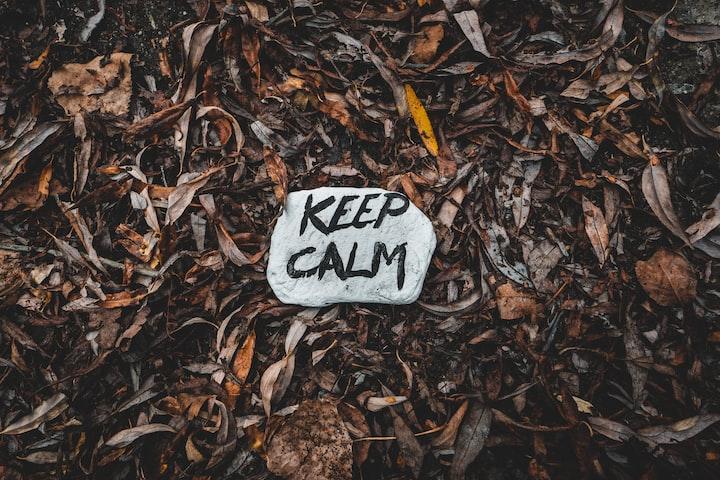Anxiety can manifest in many ways, but there are some common symptoms that tend to occur. If you’re experiencing any of the following, it’s possible you may be struggling with anxiety:
1. Constant worry or fear – Do you find yourself worrying all the time, even when there’s nothing specific to worry about? Or maybe you have a persistent fear of something bad happening, even though you know it’s unlikely? This can be a sign of anxiety.
2. Avoidance – Do you go out of your way to avoid people or situations that make you feel anxious? This might include avoiding social situations, leaving early if someone makes you uncomfortable, or avoiding anything that makes your heart race or your palms sweat.
3. Obsessive thoughts or compulsions – Do you find yourself fixating on certain thoughts or needing to perform certain rituals in order to feel okay? For example, maybe you can’t stop thinking about germs and contamination, so you wash your hands over and over again throughout the day. Or perhaps you need everything to be perfectly symmetrical and in its place before leaving the house. These obsessive thoughts and compulsions can be signs of anxiety.
4. Physical symptoms – Anxiety often manifests itself in physical ways as.
Having a sense of impending danger, panic or doom
Anxiety is a feeling of uneasiness, worry or fear. It can be mild or severe, temporary or chronic. Everyone feels anxious at some point in their life. However, for some people anxiety can become so overwhelming that it interferes with their daily activities.
There are many different types of anxiety disorders, each with its own set of symptoms. However, there are some common symptoms that are shared by most types of anxiety disorders. These include:
1) A sense of impending danger, panic or doom 2) An accelerated heart rate 3) Sweating 4) trembling or shaking 5) Shortness of breath 6) Feeling dizzy or lightheaded 7) Nausea 8 Headaches.
Sweating
Anxiety is a normal emotion that we all feel at one time or another. It’s what we feel when we’re faced with a situation that is new or challenging, or when we’re worried about something in the future. For most people, anxiety is mild and manageable. But for some, it can be more severe and debilitating.
The physical symptoms of anxiety can include:
sweating
heart palpitations
shortness of breath
dizziness or lightheadedness
nausea or upset stomach
Trembling
Trembling is often most noticeable in the hands and may also affect the arms, legs, and body. The trembling may be mild or severe and can occur when a person is anxious or at rest.
In some cases, anxiety-related trembling may be accompanied by other symptoms, such as sweating, rapid breathing, or a racing heart. For some people, anxiety can be debilitating and may interfere with daily activities. If you’re experiencing anxiety-related trembling, it’s important to seek professional help to manage your symptoms.
Feeling weak or tired
Anxiety is a feeling of uneasiness, worry or fear. It can be mild or severe, and can be triggered by a variety of things. For some people, anxiety is a chronic condition that interferes with their daily lives.
Symptoms of anxiety can include:
Feeling weak or tired. This fatigue may not be relieved by rest.
Muscle tension. People with anxiety may feel like they constantly have to tense their muscles, especially in their neck, back and shoulders. This can lead to headaches and other problems.
Difficulty concentrating or focusing on tasks. Anxiety can make it hard to concentrate on anything for more than a few minutes at a time. This can make work, school and other activities difficult to do.
Trouble concentrating or thinking about anything other than the present worry
Anxiety is a normal emotion that we all experience at one time or another. It’s what we feel when we’re worried, nervous, or afraid about something. For some people, though, anxiety can be so intense and constant that it interferes with their daily lives.
If you’re one of those people, you may have trouble concentrating or thinking about anything other than the present worry. Your mind may race from one worry to the next, and you may find it hard to relax. You may also experience physical symptoms such as a racing heart, sweating, and trembling.
All of this can be extremely distressing and make it difficult to go about your day-to-day life. If you’re struggling with anxiety, there are things you can do to get relief. Here are eight symptoms of anxiety that can interfere with your life:
1. Worrying excessively about things that haven’t happened yet: If you find yourself worrying constantly about things that could happen in the future (e.g., “What if I get fired?” “What if my partner leaves me?”), it can be a sign of an underlying anxiety disorder. This type of worry is often accompanied by other symptoms such as difficulty concentrating, muscle tension, and fatigue.
2. Avoiding situations or activities because they make you anxious: If your anxiety is severe enough, it may cause you to start avoiding certain situations or activities altogether (e..g,, driving on the highway,, flying in an airplane). This avoidance can interfere with work,, school,, and social relationships.. In some cases,, people with anxiety disorders will only leave their homes when absolutely necessary.. This avoidance behavior usually isn’t helpful in the long run because it reinforces your fear instead of helping you confront it head-on.. Additionally,,,, avoiding anxious situations generally makes them more difficult to deal with when you eventually have to face them..
